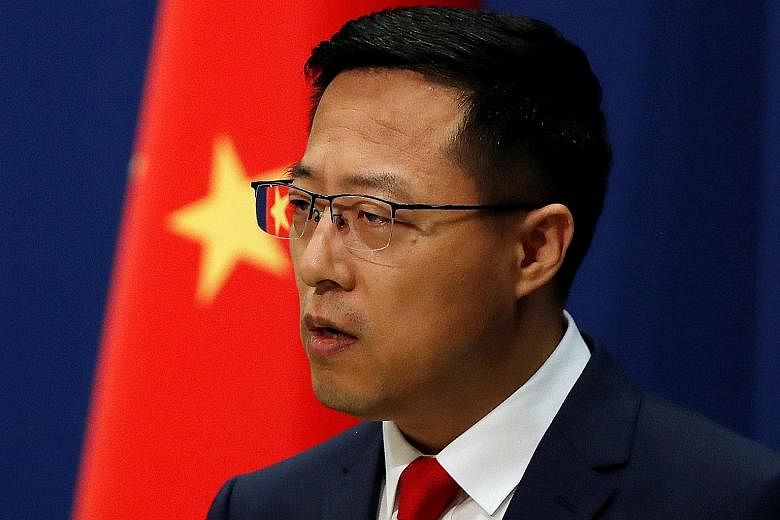BEIJING/WASHINGTON • Muslims in China's Xinjiang were "arbitrarily" selected for arrest by a computer program that flagged suspicious behaviour, activists said yesterday in a report detailing big data's role in repression in the restive region.
The United States-based non-governmental organisation (NGO) Human Rights Watch said leaked police data that listed more than 2,000 detainees from the Aksu prefecture was further evidence of "how China's brutal repression of Xinjiang's Turkic Muslims is being turbocharged by technology".
Beijing has come under intense international criticism over its policies in the resource-rich territory, where rights groups say as many as one million Uighurs and other mostly Muslim minorities have been held in internment camps.
China defends the facilities as vocational training centres aimed at stamping out terrorism and improving employment.
Surveillance spending in Xinjiang has grown in recent years, with facial recognition, iris scanners, DNA collection and artificial intelligence deployed in the name of preventing terrorism.
Human Rights Watch said it had obtained the list from an anonymous source that had previously provided audio-visual content taken from inside a facility in Aksu.
People were flagged using a program called Integrated Joint Operations Platform, which collected data from surveillance systems in Xinjiang, before officials decided whether to send them to camps, the NGO added.
The group said its research suggests that the "vast majority" of people were flagged to authorities for legal behaviour, including phone calls to relatives abroad, having no fixed address and switching off their phone repeatedly.
Only around 10 per cent of the people on the list were detained for terrorism or extremism.
The list, parts of which were shown to Agence France-Presse, described the reason for detention of many of the people as simply being "flagged" by the integrated platform. The rights group has not published the full contents of the list, citing safety concerns for the person who had leaked it.
China's Foreign Ministry spokesman Zhao Lijian yesterday accused Human Rights Watch of "stirring up trouble", saying that the report was "not worth refuting". The local Aksu government and Xinjiang's regional authorities did not immediately respond to Agence France-Presse's requests for comment.
Separately, US-based surveillance research firm IPVM said Chinese tech giant Huawei had been involved in testing facial recognition software that could send alerts to police when it recognised Uighur minorities' faces.
Huawei yesterday said the program "has not seen real-world application", and that the firm "only supplies general-purpose products for this kind of testing".
Meanwhile, US Republican Senator Marco Rubio and Democratic Representative Jim McGovern on Tuesday sent letters to Intel and Nvidia seeking information on the sale of computer chips allegedly used by China to conduct mass surveillance on Uighurs in Xinjiang.
The letters asked if the firms' chief executives knew their technology would be used to support such activities and whether they took steps to ensure their products were not used for human rights abuses or to compromise US national security. Nvidia declined to comment. Intel said it does not tolerate its products being used to violate human rights.
AGENCE FRANCE-PRESSE, REUTERS


